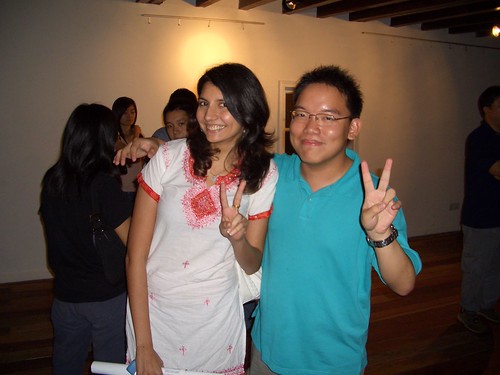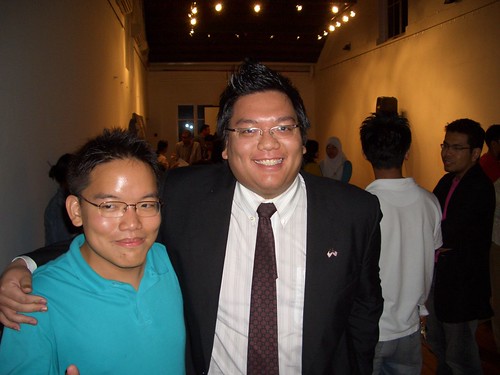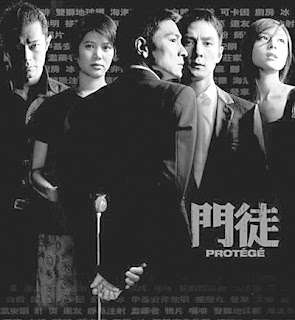
Quentin S. Crisp is a British writer who ostensibly produces horror or 'weird' fiction, but I don't really care about either of those genres or whether Crisp conforms to them. The reason his writing interests me is because of the personality and worldview underlying it, and the way the language of his fiction conveys them. Crisp has described his own writing as 'demented fiction', but I approached it the same I would any novel, not particularly worrying about the genre.
This is not to suggest Crisp's work isn't often horrific, though, because it is. Mainstream fiction, such as the numerous tedious novels dealing either directly or tangentially with 9/11, admits existential horror and aimlessness only through a kind of trapdoor designed to regulate their impact: things may look bad for a time, but there is always faith, hope, love, the human spirit, conventional middle-class values, etc. to be salvaged at the end. This kind of 'salvaging' goes back as far as something like Conrad, whose
Heart of Darkness presented a vision of mindless, insectile oppression but still came down on the side of England and protected innocence. The legacy of this approach can be seen in most current prize-winning novels.
But in Quentin S. Crisp's fiction, much like that of Pierre Guyotat and H.P. Lovecraft, the meaninglessness of the universe is neither a conclusion to be reached nor a straw-man to be attacked; instead it forms the basic kernel of the narrative on which everything else rests. In short, he doesn't
discover that the universe is blind and amoral, he
begins from there. Through hard experience, his protagonists have come to expect little; they are often nervous, introverted, and subtly wounded. They're frequently nostalgic for a half-remembered past or childhood idyll, but are deeply suspicious and ambivalent about 'normal' human interaction - friendships are often tenuous, romantic and sexual contact is more an ordeal than a pleasure, and family members remain as elusive as the past they seem to represent. If all this sounds too bleak, though, Crisp also displays a sense of humor, although a sense of absurdity would perhaps be a better term for it. The stories in his third book
Rule Dementia!, like 'Jellyfish Joe' and 'The Haunted Bicycle', are replete with off-kilter, surreal humor that isn't easy to separate from the more serious content (if such a separation is possible at all).
Crisp's prose style is dense, eloquent, and occasionally florid. He doesn't write the kind of disposable, conversational instant-messager prose style now commonplace; neither does he limit himself to suggestive understatement. There is little dialogue and much reflection; often several pages go by without anyone speaking. This creates a tense, dreamlike atmosphere of consumptive prose: finishing one of these stories (most of them quite long, verging on novellas) feels as much like surfacing from a black pool as it does turning pages. And the stories are often subtly complex in structure, with several containing 'nested' narratives (a literal message-in-a-bottle in 'The Waiting'; journal entries and pamphlets in 'The Tao of Petite Beige'; old letters in 'The Haunted Bicycle'), author introductions, and italic preludes. These devices are less metafiction than they are an evocation of old-style epistolary conceits and formats, present in the earliest of novels and long a staple of horror fiction.
'Jellyfish Joe' opens the collection with the aforementioned humor, concerning a makeshift religion predicated on string vests, bowler hats, and jellyfish. This story is quite different from the rest in the collection, and hints at an almost Monty Python-esque sensibility simmering beneath the surface of Crisp's dark worldview. The eponymous Joe is a kind of fake mystic or charlatan, but his insights into the nature of being and nothingness are conceivably as valid as a more 'serious' religious figure's would be - an insight any Zen fans will be liable to appreciate. This story seems the closest out of any in the collection to suggesting that the absurdity of the universe can be a source of joy and freedom as well as horror. Although I don't know if Crisp has read them or not, this story seems vaguely influenced by Discordianism and R.A. Wilson, or at least sympathetic to them (that's a good thing).
With 'The Haunted Bicycle',
Rule Dementia! hits an early peak. This novella is impossible to describe succinctly, due in part to its experimental structure - a kind of picaresque loosely accreting detail - but it most fully demonstrates the range of possibility in Crisp's writing. It begins with an autobiographical introduction, in which Crisp reserves "the right to tell bare-faced lies at any point in this story, in this disclaimer and in life generally, especially to those I owe money." What follows is an account of the narrator's time with his friend Les, as their private jokes about earwigs, mackerel, and ginger-haired women assume the proportions of an absurdist conspiracy. As the narrative progresses in increments, it seems to mirror the process of creating fiction itself, in that random elements and conversations inspire previously unthought-of connections, until a kind of associative mania threatens to contaminate everything. Repeated motifs form their own internal logic and consistency, dreams and reality become indistinguishable, until the whole thing takes on an alternately frightening and laughable urgency, between which Crisp inserts some of his best character development. The conspiracy and the haunted bicycle itself are MacGuffins; the real weight of the story is the incidental scenes of the narrator and Les watching television, drinking tea, and exploring the countryside, two unemployed friends making the best of their time:
Watching Lassie is like going into a coma, falling under a spell of utter and perfect tedium. So we were slack-jawed, occasionally dunking our digestives, until there came the inevitable point in the water torture that passed for a script where Lassie barked at a group of human co-stars and one of them said, 'I think she's trying to tell us something. I think she wants us to follow her.'
Although the gender of the characters is obviously different, 'The Haunted Bicycle' almost reminds me of the film
Heavenly Creatures in its depiction of two friends experiencing or giving rise to a private imaginative universe.
The next story, 'Zugzwang', contains shades of Lovecraft's 'The Music of Erich Zann', but soon veers off in its own direction. Proceeding from the fairly conventional setup of a meeting in a bar, the story soon assumes an oppressive atmosphere of suspicion and terror, as the cello-playing, paranoid and possibly schizophrenic protagonist hears secret, inhuman voices emanating from his girlfriend and mother. The atmosphere of hopelessness is difficult to describe, but conveys an almost primal disgust and terror at existence.
'The Tao of Petite Beige' is another highlight, possibly the best story in the collection. This is a classic-style 'weird tale' with a strong narrative and great descriptions. Crisp's prose can occasionally be over-indulgent or excessively, wanderingly introspective, but here it stays on track. It concerns Paul, an English expatriate in Taiwan, who becomes ensnared in both his own dreams and a cult of the goddess Guan Yin. This story is so good it almost feels timeless, easily capable of standing up to the works of Blackwood, Machen, Lovecraft, or Poe. You can almost imagine it being made into a
Ringu-style (or
The Wicker Man - the original, of course) horror movie as well, and believe it or not, I intend that as a compliment. The pacing is tight, there's plenty of compelling description, and the ending is both fatalistic and completely appropriate. Its themes are varied and interrelated: the danger of depending on fantasy relationships, the perils of exoticizing cultures, the subterranean persistence of folk religions (a very Machen/Blackwood-esque theme), the conflicts of asceticism vs indulgence, etc. Crisp makes the most of the dreamlike imagery, as well as throwing in references to Bettie Page, Thelema, pop art, and more. There's tons of great writing:
And if there is so much power in an obscure phrase such as that, what about a common and time-honoured word like 'girl'? The hard 'g' dangles its legs out of the skirts of the word. The 'ir' in the middle is full of fuzz and bubbles. Then comes the clean, virginal 'l' at the end.
'The Waiting' is another horror story, one that perhaps borrows a motif from some of Thomas Ligotti's 'corporate horror' - it's set in a bank, for one thing. It'd also seem to be the most openly Lovecraftian thing here, what with names like 'Yxthahl' and 'Pnath', but Crisp makes it all his own. The protagonist discovers that his murderous supervisor is capable of leaving the universe at will and travelling to a kind of arcane external universe. As the narrative progresses, the protagonist finds himself able to rely on less and less, to the extent where the past itself, entire individuals and memories are deleted from 'Outside'. The sense of dislocation and hopelessness becomes truly suffocating, mirroring the protagonist's frequent trips into the outer-world of featureless black corridors which seem to extend forever. This story feels like wading through a nightmare, with a sense of palpable suffocation through the worldview it presents: there exists the prospect of hermetic advancement, a kind of parallel to climbing the corporate ladder, but there is no reward or God at the top, just endless, amoral level-building: the metaverse as first-person shooter.
The last story, 'Unimaginable Joys', focuses on a lament for a vanished world of the mind. Difficult to say much about this one without giving it away, but it contains lots of evocative prose and a great ending.
"First, look around you."
She does as instructed.
"Yes?"
"What's missing?"
"I don't know. Nothing that I noticed."
"Are you sure?"
"Yes."
"You think this is enough for your needs?"
"This cafe?"
"Well, not just this cafe - the world."
"Well, yes, isn't it enough?"
"No. No, it's not enough. It's not even a start. It's nothing."
You owe it to yourself to
go here and buy Rule Dementia!, because you've probably wasted a lot of time reading generic or average books, and this is not one of them. I'll say it again: these stories being 'horror' is the least interesting thing about them. This is not mainstream genre fiction's simplistic good v.s. evil, vampires and werewolves horror, neither is it the sloppily written, gore-filled other end of the spectrum. Crisp's writing is more about atmosphere, mindset, and emotion than it is about monsters or plot mechanics. Quentin S. Crisp will undoubtedly become huge before long, so check him out before that happens.
Incidentally, I'm essentially retiring from book reviews here - I'll probably keep up with the music updates, but I just don't have the time anymore to go into depth about written works. This is because I will soon be returning to Japan for a year or so, to study and teach. Traditional sights like temples and shrines will be ignored. Video games, anime, and idol music will also be ignored. The only thing that will not be ignored is
gyaru.










